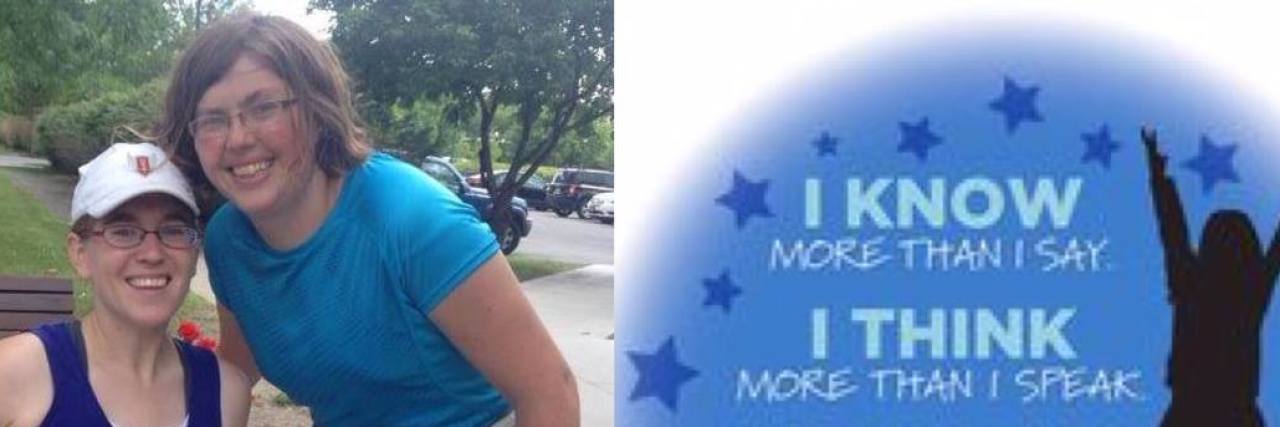When you have oral apraxia, there’s a lot of daily challenges. A person with oral apraxia will have difficulties with movements of parts of the mouth, lips, tongue and jaw. It’s hard to produce clear speech, and oral apraxia makes other activities like blowing bubbles, chewing and swallowing a challenge.
Other difficulties people with oral apraxia may face include missing a step eating (at random times) that can result in choking, or having trouble pronouncing a word (even though in your mind you know what to say). These situations can be frustrating because although the person know’s what to do or say, they can’t.
Oral apraxia can also cause a person to have difficulties in social settings and at meal time. For example, those with it often have a hard time with licking an ice cream cone and are prone to serious messes which can be very frustrating. It’s also hard to learn to drink from a straw. We often bite on it, or knock the drink over while holding it. And using a straw requires too many motor skills to be successful. Of course, the hardest part is not being able to blow bubbles (such a popular activity for children).
But while oral apraxia can be discouraging, working with a speech therapist can help improve these skills. For me working on these skills in speech was more enjoyable as it provided some laughs, and it was more relaxing than repeatedly practicing sounds.
The hardest part about oral apraxia is that it rarely occurs alone, and research shows it is pretty much a given that if you have oral apraxia you’re also going to have verbal dyspraxia formally, known as apraxia of speech. This makes communicating even more of a challenge as generally your oral motor skills are especially impaired by having both forms.
This leads to needing more speech therapy then most children get, and often getting it individually for at least half of your sessions. Since therapy’s focus is on developing all necessary oral motor skills needed in life, working together 1:1 is vital. While this may be frustrating, in the long run you will be grateful because improving your oral motor skills will make your academic and social situations less stressful.
My oral apraxia still affects me. I can’t blow up balloons and am not comfortable eating ice cream from a cone. Every once in awhile I miss a step in eating, meaning I may try and swallow when I really wanted to keep chewing and I end up choking. Fortunately I found that drinking carbonated beverages helps remove food being stuck in my throat. I also still make mistakes with my speech which is frustrating because just the day before my speech could be especially clear.
Oral apraxia also makes it tricky to go the dentist. Yes most people hate going to the dentist, but for someone with oral apraxia it can be even worse. Even a dental cleaning can take twice as long as the oral motor struggles can lead to awful gag reflex given the sensitivities to the toothpaste and movements required to properly clean your teeth. This requires multiple breaks throughout the cleaning and high amounts of support and patience. Fortunately I have a family friend for a dentist and hygienist and they are very aware of my challenges and they are very patient with me.
But through it all I take comfort knowing my secondary speech therapist’s strong knowledge of oral and verbal apraxia has allowed me to manage each situation more effectively. Yes receiving 1:1 therapy for a few years was hard, (as I saw myself as “stupid”) though it was what I needed. Accepting this allowed us to have many heart to heart conversations. It allowed me to see the reason she chose the 1:1 setting was because she saw my true potential not that I was “stupid.”
I am eternally grateful for my secondary speech therapist, together we acquired skills that most didn’t believe were possible for us. I do believe you too can have a similar experience, though you must be motivated to overcome your obstacles as your speech therapist doesn’t have magical powers!
All of the challenges I described may seem scary to you, especially the difficulties of swallowing, however I can say with great confidence that there’s no reason to be scared. I know working with your speech therapist, especially individually when practice is more intense, is a highly effective treatment. Although it isn’t easy, by working together you will gain skills that you didn’t think were possible.
Photo submitted by contributor.

